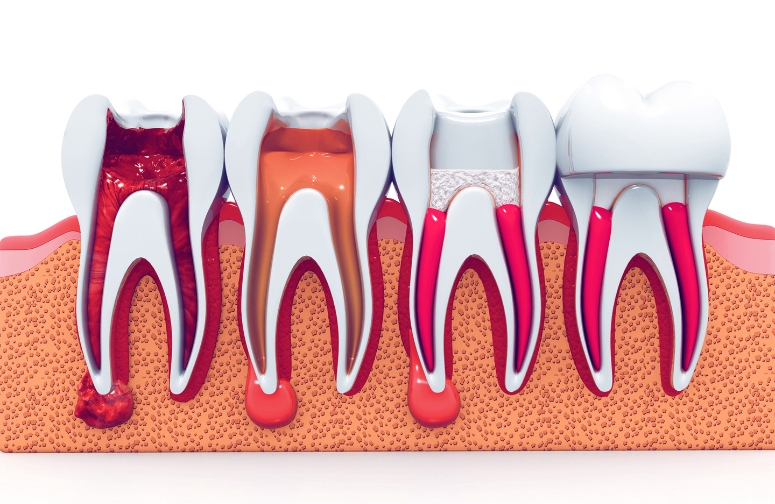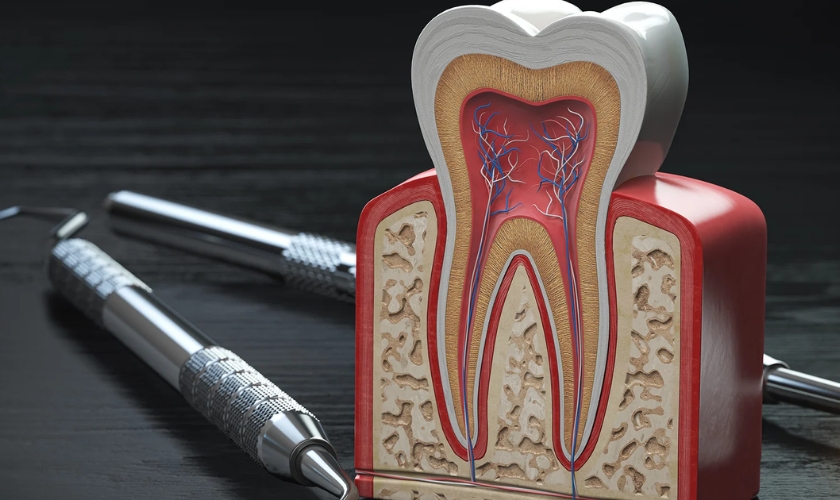
A sharp toothache hits out of nowhere, and suddenly, the dentist’s chair becomes your next destination. The diagnosis? A root canal. It sounds intense, but here’s the real question: how long does a root canal last? Will it hold up for years, or are you signing up for future dental work? Let’s dive into the facts about the lifespan of a root canal.
The Lifespan of a Root Canal-Treated Tooth
A well-performed root canal can last a lifetime, but several factors influence its durability. Some teeth remain strong for decades, while others may need retreatment sooner. Here’s what determines its longevity:
- Tooth Location – Molars handle the most pressure when chewing, making them more prone to fractures than front teeth.
- Crown Placement – A dental crown significantly extends the lifespan of a treated tooth by protecting it from daily wear.
- Oral Hygiene Habits – Brushing, flossing, and regular checkups keep bacteria at bay, reducing the risk of reinfection.
- Biting Forces – Teeth grinding or chewing hard foods can weaken the structure over time.
- Quality of Treatment – A well-executed root canal seals the tooth properly, preventing future complications.
Does a Root Canal Last Forever?
Nothing in dentistry lasts forever, but a root canal is one of the most durable treatments available. Studies show that with the right care, most root canal-treated teeth remain functional for 10-15 years or longer. Some last a lifetime. However, without a protective crown or good oral care, its lifespan decreases.
Signs That a Root Canal May Need Retreatment
Even a successfully treated tooth isn’t invincible. If you notice any of these signs, your root canal may need attention:
- Persistent Pain – Any lingering discomfort could indicate reinfection or a hidden canal that wasn’t treated.
- Swelling or Tender Gums – Inflammation around the treated tooth is a red flag.
- Tooth Discoloration – A darkening tooth might suggest internal damage or decay.
- Loose Crown or Filling – If the seal breaks, bacteria can sneak in, causing new problems.
- Sensitivity to Pressure – A healed tooth shouldn’t hurt when biting down. If it does, something might be wrong.
Can a Root Canal Fail?
Yes, though it’s rare when performed correctly. Root canal failure happens when infection lingers or returns. The most common reasons include:
- Missed Canals – Some teeth have hidden canals that may not have been treated.
- Fractured Tooth – A crack can expose the inner layers to bacteria.
- New Decay – Cavities around a filling or crown create an entry point for infection.
- Old Fillings or Crowns – If restorations wear out, bacteria can infiltrate the tooth again.
How to Make Your Root Canal Last Longer?
A few simple habits can extend the lifespan of your treated tooth:
- Get a Crown – This is non-negotiable for back teeth. A crown adds strength and protection.
- Avoid Hard Foods – Ice, hard candies, and nuts can cause fractures.
- Wear a Nightguard – If you grind your teeth, a nightguard prevents stress on your restoration.
- Stick to Good Oral Hygiene – Brush twice daily, floss regularly, and schedule professional cleanings.
- Don’t Skip Dental Visits – Routine exams help catch issues before they become major problems.
A root canal is not just a short-term fix—it’s a long-term investment in your dental health. With the right care, your tooth can remain functional for decades. The key? Protection, maintenance, and regular checkups under a dentist in Winfield. If you want your root canal to last, treat your teeth like royalty. They work hard every day—why not give them the care they deserve?





